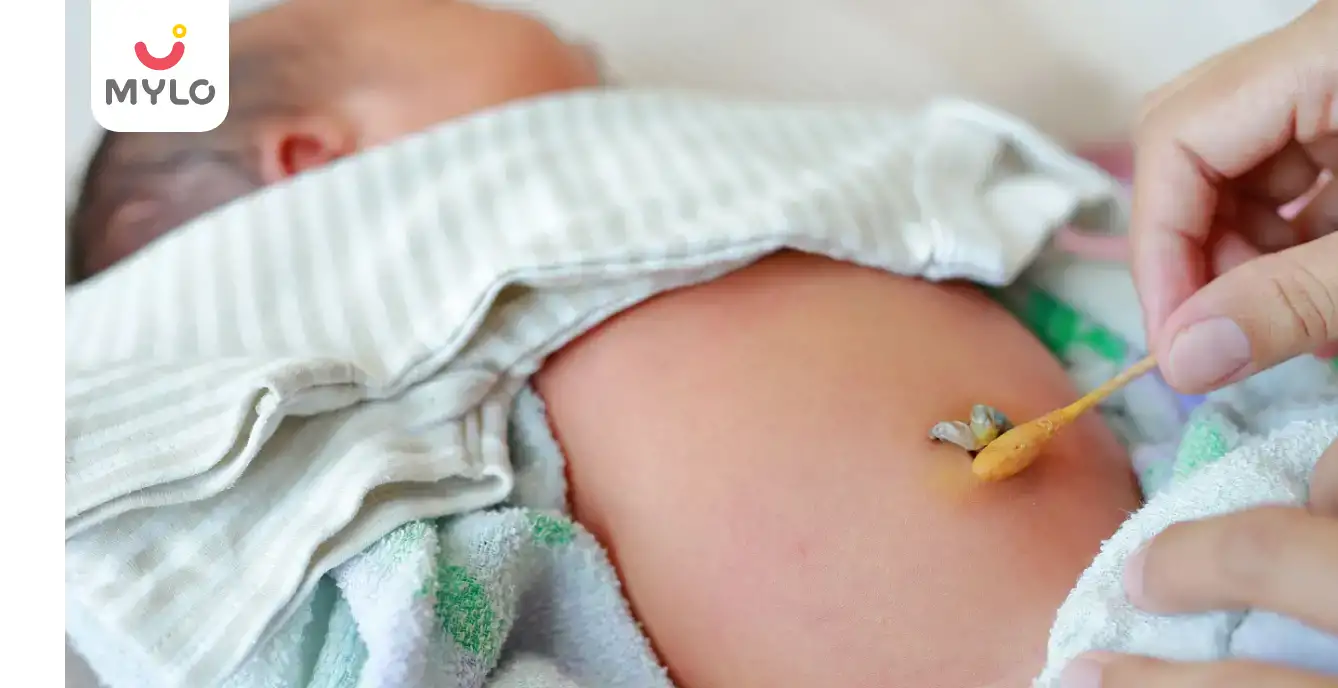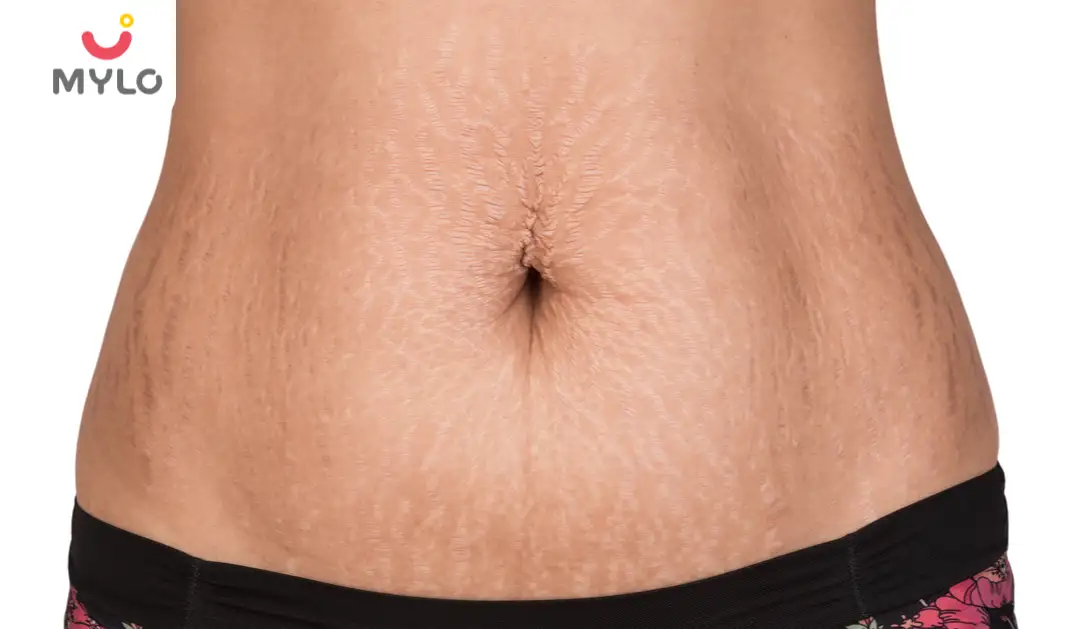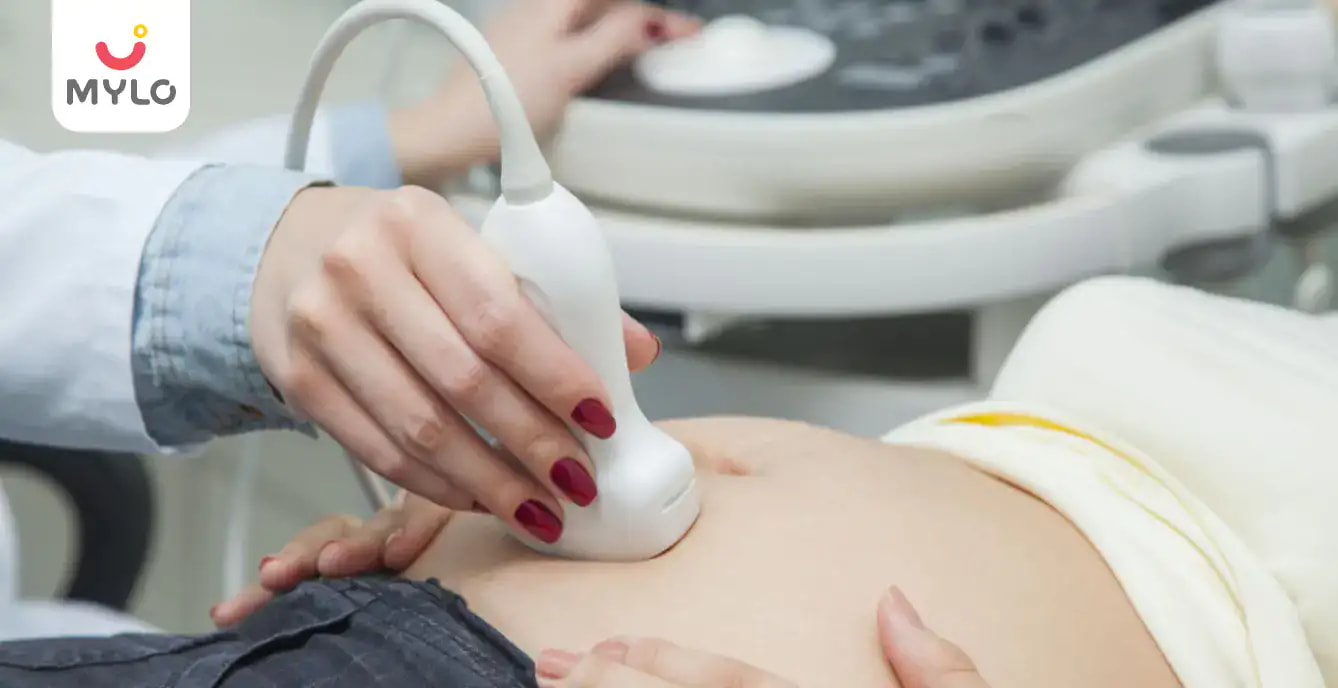Home

Scans & Tests

Amniocentesis: Meaning, Risks & Results
In this Article

Scans & Tests
Amniocentesis: Meaning, Risks & Results
Updated on 24 March 2023
With numerous advances in medical science and technology, the number of prenatal tests and diagnoses available to a pregnant woman and her unborn baby has significantly risen in the past few years. One such prenatal diagnostic test that can help determine an unborn baby’s risk of a chromosomal anomaly or genetic disorder is amniocentesis.
In this article, we will discuss in detail what is amniocentesis, why is the amniocentesis test offered and what the amniocentesis procedure involves.
What is amniocentesis?
Amniocentesis is a prenatal test that may be offered during pregnancy to check whether the unborn baby has a genetic or chromosomal anomaly such as Down’s Syndrome, Edward’s Syndrome or Patau’s Syndrome. The amniocentesis procedure involves checking the amniotic fluid surrounding the foetus.
You may also like to read : Thalassemia Test During Pregnancy
Who gets amniocentesis?
Amniocentesis is not offered to every pregnant woman. It can be recommended by your doctor if the chances of your baby having a birth defect or medical condition is higher than average. A doctor could suggest you an amniocentesis test when:
-
A prenatal screening test has suggested your baby may have one of the following conditions: Down’s Syndrome, Edward’s Syndrome or Patau’s Syndrome.
-
You had a previous pregnancy affected by a genetic condition
-
You have a family history of genetic conditions like sickle cell disease, cystic fibrosis, thalassemia or muscular dystrophy
While you may be offered an amniocentesis test, it’s totally up to you whether you want to go through with it or not.
When is amniocentesis performed?
The amniocentesis procedure is carried out between 15 to 20 weeks into the pregnancy in order to ascertain any foetal health problem. But it can also be recommended sooner or later if during an ultrasound the doctor comes across any underlying birth defect.
How to prepare for an amniocentesis?
Knowing how the amniocentesis procedure will be carried out can help you prepare for the test. During the test, the doctor will insert a needle into your uterus through the belly with the help of an ultrasound image. With the help of the needle, the doctor extracts around 30 ml of the amniotic fluid which will be tested later in a lab.
The test is usually around 10 minutes long, although the whole procedure and consultation may take around 30 minutes. The amniocentesis test is usually described as uncomfortable rather than painful. You may experience a pain similar to that felt during periods or some pressure when the needle is taken out.
You may also like to read : Noninvasive Prenatal Testing (NIPT) | All You Need To Know
Risks of amniocentesis
The amniocentesis test is generally considered to be beneficial as it can tell you in advance whether your baby has a serious health condition or not. Most parents aren’t prepared to care for a baby with birth defects. However, with the information beforehand, you and your partner can plan better for the future. The amniocentesis test results can also help you decide how to have the baby i.e. whether a vaginal delivery is possible or a C-section is required.
The amniocentesis procedure is considered to be safe, but you need to weigh in the risks as well. There is a minor chance of miscarriage while the test is performed. Though the risk is minimised when the test is conducted by a highly trained doctor.
Some of the other risks involved during the amniocentesis procedure include:
1. Injury
When the needle is inserted during the test, there is a small chance that it may poke the baby. The most common injury is a tear in the placenta, which usually heals without any complications.
2. Infection
While carrying out the amniocentesis test, there is a small chance that the amniotic fluid may become infected.
3. Bleeding
There’s also a slight risk that the pregnant woman may bleed during the test and her blood may mix with the baby’s blood.
Results and Further Actions
The results of the amniocentesis test should be available to you within 3 working days. The results will disclose whether the baby has Down's syndrome, Edwards' syndrome or Patau's syndrome. In case the doctor has tested for some rarer conditions, then it may take 3 weeks or more for the results to be available. If the results show that the baby has a genetic condition or chromosomal anomaly, your doctor will discuss the implications with you.
Sadly, there’s no cure for most of the conditions detected in an amniocentesis. So, you must consider your options carefully and seek guidance from your doctor and family members. You can choose to continue with the pregnancy and gather useful information about the baby’s condition so you’re fully prepared to offer them the care they need.



Written by
Ravish Goyal
Official account of Mylo Editor
Read MoreGet baby's diet chart, and growth tips

Related Articles
Related Questions
Hello frnds..still no pain...doctor said head fix nhi hua hai..bt vagina me pain hai aur back pain bhi... anyone having same issues??

Kon kon c chije aisi hai jo pregnancy mei gas acidity jalan karti hain... Koi btayega plz bcz mujhe aksar khane ke baad hi samagh aata hai ki is chij se gas acidity jalan ho gyi hai. Please share your knowledge

I am 13 week pregnancy. Anyone having Storione-xt tablet. It better to have morning or night ???

Hlo to be moms....i hv a query...in my 9.5 wk i feel body joint pain like in ankle, knee, wrist, shoulder, toes....pain intensity is high...i cnt sleep....what should i do pls help....cn i cosult my doc.

Influenza and boostrix injection kisiko laga hai kya 8 month pregnancy me and q lagta hai ye plz reply me

Related Topics
RECENTLY PUBLISHED ARTICLES
our most recent articles

Umbilical Cord
Umbilical Cord: Risks, Benefits & Recovery

Stretch Marks
Stretch Marks Removal: Tips & Remedies

Fussy Baby
How Can Dads Calm A Fussy Toddler

General Father
How to prepare your older child for a new baby

General Father
5 Financial Moves You Must Make Before Your Baby Arrives

General Father
Daddy-Baby bonding from Pregnancy to Childbirth: Top 7 tips for you
- How to prepare your child for pre-school
- I am pregnant, can I still breastfeed my toddler?
- My toddler has bad breath. what should I do?
- When will my toddler learn how to scribble or draw?
- Can loud volume affect my toddler's ears?
- Running & Jumping Milestones for your toddler
- Activities to keep an active toddler occupied at home
- Girls' growth chart: 24 to 36 months
- What to do if your toddler is overweight?
- Electric toothbrush for Toddlers: Is it safe?
- Teaching good eating habits to your kids
- How to Introduce Books to Your Child?
- This is how you can talk to your child about strangers
- A healthy meal plan for your 2-year-old


AWARDS AND RECOGNITION

Mylo wins Forbes D2C Disruptor award

Mylo wins The Economic Times Promising Brands 2022
AS SEEN IN

- Mylo Care: Effective and science-backed personal care and wellness solutions for a joyful you.
- Mylo Baby: Science-backed, gentle and effective personal care & hygiene range for your little one.
- Mylo Community: Trusted and empathetic community of 10mn+ parents and experts.
Product Categories
baby carrier | baby soap | baby wipes | stretch marks cream | baby cream | baby shampoo | baby massage oil | baby hair oil | stretch marks oil | baby body wash | baby powder | baby lotion | diaper rash cream | newborn diapers | teether | baby kajal | baby diapers | cloth diapers |








